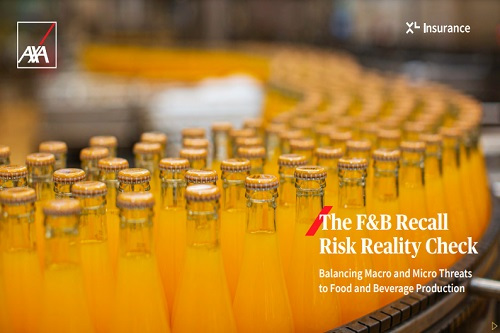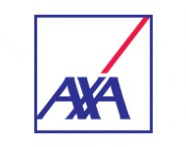From farm to fork; mitigating product recall risks

By AXA XL Head of UK & Lloyd’s and Global Underwriting Practice Leader, Product Recall Jonathan Kelly
Product recall is a critical risk for companies involved in the food and beverage industry. There are numerous threats, both macro and micro, that can impact the production of food and beverages and prompt the risk of a recall. And recalls can have both large financial and reputational consequences. Jonathan Kelly, Head of UK & Lloyd’s and Global Underwriting Practice Leader, Product Recall at AXA XL, discuss how product recall risk is evolving for food and beverage clients and how risk management protocols and risk transfer can help.
Product recall is an ever-present risk for clients in the food and beverage sector. Many factors, both at a macro and a micro level, can impact the supply chain or processes of food and beverage production. Today, clients are faced with several challenges, including macroeconomic and geopolitical pressures, set against a background of changing consumer preferences, the need to uphold Environmental, Social and Governance (ESG) standards, and new methods of farming.
The global economic situation and geopolitical developments are affecting supply chains for a wide variety of goods and materials, including ingredients. Cost inflation, exacerbated by supply issues caused by conflicts and political disputes, means that many food and beverage producers are facing difficulties in sourcing certain substances and may be forced to switch ingredients. In some cases, the food and beverage producer may not be aware that such a swap has been made at some point along the supply chain. Potential risks arise if the ingredient that has been substituted is of lesser quality than the original, resulting in an inferior end product.
Other supply challenges
Against the backdrop of an uptick in demand for food and beverages following the pandemic, which had its own impact on supply chains, shortages of labour have also affected the supply – and therefore the price – of certain crops.
In the United Kingdom, for example, one of the effects of the country’s exit from the European Union has been a shortage of labour – in agricultural roles in particular –resulting in some producers having difficulty in harvesting crops, which has inevitably led to some supply-chain crunches.
Added to this, changing climate conditions and a number of extreme weather events, like severe drought and flooding, have affected crop yields in many areas of the world. This again has led to shortages of certain ingredients and resultant increases in price.
These risks to supply chains have been made more complex by the prevailing trend towards industrialised farming, whereby large, monoculture farms produce massive quantities of a single product. This trend is being driven in part by consumers’ desire to have access to cheaper foodstuffs. Supply chains, as a consequence, are often global in nature, with ingredients sourced from all round the world – adding to their complexity and increasing their vulnerability to external pressures.
Changing consumer habits
In recent years, many consumers have become more vigilant than ever before about where their food comes from and are demanding greater transparency from food and beverage producers.
An increase in vegetarianism, veganism, ‘flexitarianism,’ and general healthy eating, alongside an increase in allergies and the desire of many consumers to know that they are eating food that has been ethically sourced and produced, means that there is even greater pressure on food and beverage companies to be clear about where their goods are derived from and how they are made.
The increased use of social media amplifies the risk of getting this wrong; negative messages can spread rapidly. On the flipside, however, food and beverage producers can themselves make use of the power of social media both to dispel misinformation and to spread positive messages.
Oversight increasing?
In recent years, there’s been a noticeable uptick in the number of site inspections and regulatory activity surrounding food and beverage production. Added to that, the techniques used by inspectors have become more sophisticated. As a result, it is now easier to pinpoint a problem to a specific source or facility.
While this helps to isolate and rectify potential issues much more quickly than before – likely lessening the risk of impact or a recall – there are reputational issues to be considered and managed.
Global regulators too have increased their activity, with particular focus on areas like the ESG performance of companies. Food and beverage companies, therefore, need to have checks and balances in place to try to ensure that labour conditions throughout their supply chains are equitable and that their environmental performance is good.
Managing the risks
Many of the risks facing food and beverage producers are global in nature and fast-moving. Product recall insurance programmes and – crucially – the access to services to help assess threats, plan for crises, manage reputational issues and media responses, among other things, that form part of these policies are a vital tool in helping food and beverage companies manage these risks.
To combat the threats to their supply chains, food and beverage clients undertake rigorous assessments of those chains and processes along the way.
Threat Assessment and Critical Control Protocols (TACCP) and Vulnerability Assessment and Critical Control Point (VACCP) analyses are valuable tools used to identify areas of vulnerability and to put in place procedures to minimise them. Our food and beverage clients also work with our risk experts to undertake horizon-scanning to anticipate risks to their increasingly complex supply chains.
Product recall is a critical risk to the performance, survival and growth of companies in the food and beverage sector. With the world in a state of seeming ‘perma-crisis’, with numerous macro and micro threats to companies of all types, food and beverage producers are increasing their vigilance on these evolving threats and working with insurers and risk expert partners to put in place plans to help assess, manage, transfer and recover from the threats to their supply chain.
AXA XL, in conjunction with Instinctif, recently published a report, The F&B Recall Risk Reality Check, that examines these risks and how to assess and manage them and many more in greater depth. The report can be viewed here.
About AXA XL
AXA XL is the P&C and specialty risk division of AXA which provides property, casualty, professional and speciality products to industrial, commercial and professional firms, insurance companies and other enterprises, here in the UK and throughout the world. With underwriting teams based in the US, UK, EMEA and Asia Pacific regions, we can make decisions close to the markets you serve and work with you to tailor cover to your business needs.
We help businesses adapt and thrive amidst change. Rather than just paying covered claims when things go wrong, we go beyond protection into prevention so your business can go beyond the unexpected.

